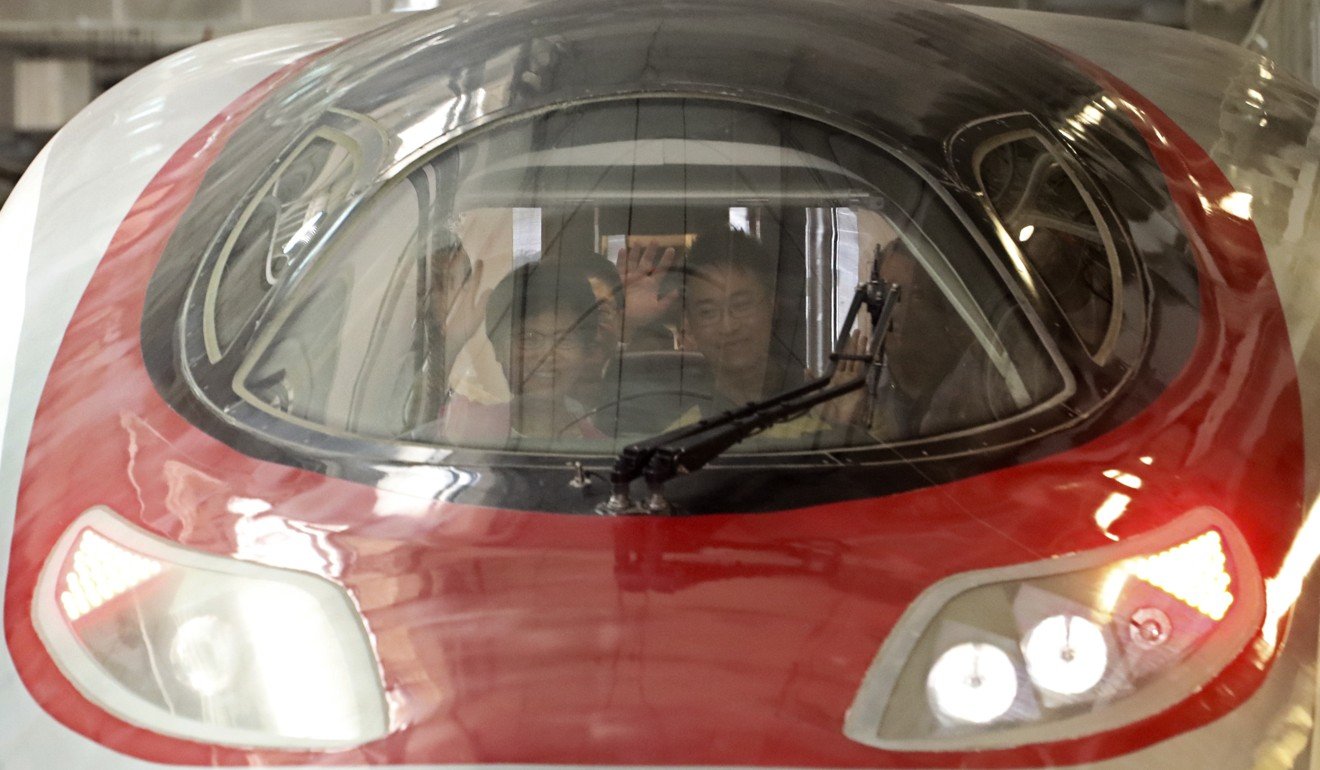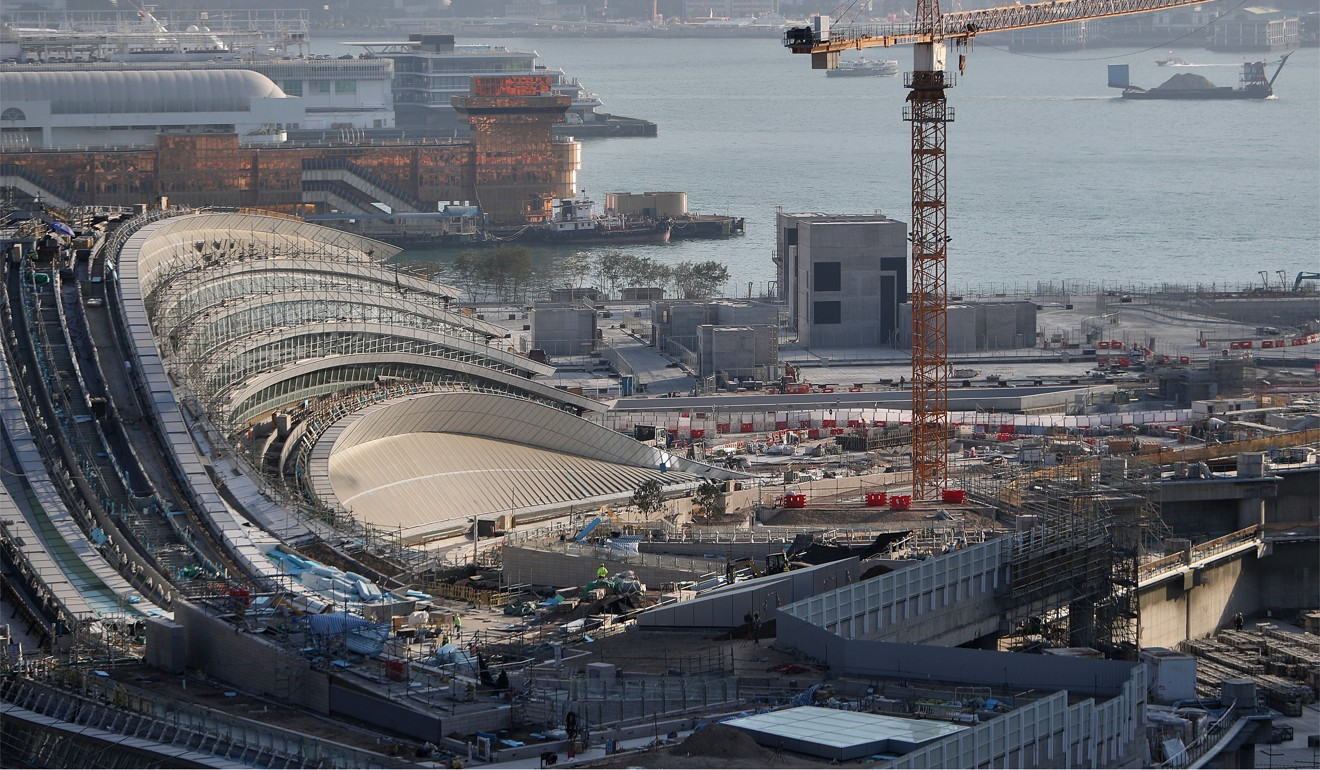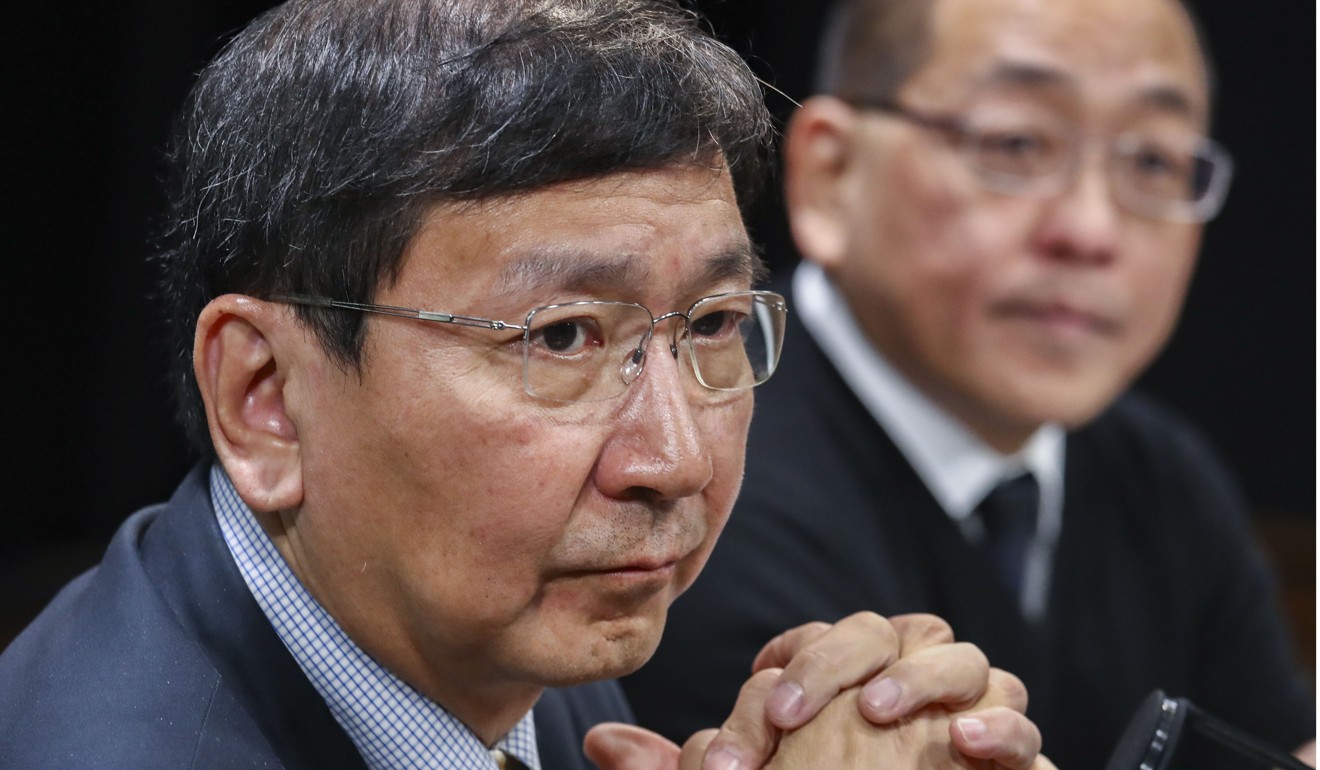
Hong Kong leader brushes off concerns of lawyers over China joint rail checkpoint plan, saying legal basis is clear
Carrie Lam hits out at ‘elitist mentality’ held by some in the local legal sector, who she says assume the Hong Kong system to be superior to the mainland’s
The chief executive’s remarks came after a number of legal experts vehemently attacked the proposal to station mainland control officers and enforce mainland laws in part of the Hong Kong rail terminal at West Kowloon, saying the city’s mini-constitution did not provide for such an arrangement.

Lam dismissed concerns about the legal basis for the checkpoint, saying a three-step process outlined by which Hong Kong would implement the arrangement for the line to Guangzhou was “entirely prudent and lawful”.
“I think it is inaccurate for some people in the legal sector to describe such a careful procedure as being merely someone’s call, or rule by man,” Lam said.
Ongoing row over legality of joint checkpoint plan sees Hong Kong’s ex-justice minister and mainland scholars enter the fray
“If you ask me, it shows the elitist mentality or double standards held by some of the lawyers in Hong Kong. They think Hong Kong’s legal system is paramount while the legal system of the mainland – a big country with a population of 1.3 billion – is not right.”
Lam said such an attitude was unfavourable in maintaining Hong Kong’s high degree of autonomy under the “one country, two systems” governing formula, in place since the transfer of sovereignty from Britain in 1997.
Her defence of the plan also drew the ire of local opposition pan-democrat lawmakers, who said they would stage a protest march on New Year’s Day against the so-called co-location arrangement. The legislators said the plan would undermine “one country, two systems”.
The checkpoint plan would grant mainland officers almost full jurisdiction over part of the rail station, meaning mainland Chinese laws would be enforced on Hong Kong soil for the first time.
The Hong Kong Bar Association and a group of legal heavyweights have slammed the plan, which was officially approved by China’s top legislative body last week.
Hong Kong Bar Association ‘appalled’ by approval of joint checkpoint plan, saying it ‘irreparably’ breaches Basic Law
Some legal experts have said the checkpoint plan could face challenges in the Hong Kong courts, but have conceded that such a process would only end up in the NPCSC issuing an interpretation of the Basic Law to ensure the proposal had a clear legal mandate – a right the NPCSC holds under the Chinese constitution.
But Lam on Sunday firmly rejected the idea the government might ask the NPCSC to intervene in such a way.
“The Hong Kong government would not make such a serious move just because of the views expressed by some people in the legal sector,” she said.

“The problem now is not that the plan lacks a legal basis, it is only that some people in the legal sector believe it lacks a legal basis.”
She said no one could have foreseen the current checkpoint plan and rail link when the Basic Law was adopted in 1990, so it would be “imposing a difficult task” on the government to insist a specific clause be cited to justify the proposal.
Newly approved joint checkpoint plan will damage Hong Kong’s rule of law, legal heavyweights say
Professor Johannes Chan Man-mun, a former law dean at the University of Hong Kong, said Lam’s rebuttal on Sunday was “disappointing and astonishing”.
“It is very irresponsible for the chief executive to accuse the legal sector of having double standards when the lawyers – not a few, but generally – are trying to tell the government its proposal does not work,” Chan said.
“Instead, the government should review its plan and try to explore solutions to the legal problems.”
Chan also cast doubt on Lam’s understanding of the rule of law, saying she should either amend the proposal to fit the law or amend the law itself. He added that the chief executive should not blame others.

Civic Party lawmaker Tanya Chan, a barrister and convenor of a concern group on the co-location arrangement, said Lam was only closing her ears to the criticism. She called on Hongkongers to join the New Year’s Day march.
A giant yellow banner bearing the slogans “Safeguard Hong Kong” and “New Year’s Day March” appeared on Beacon Hill in Lion Rock Country Park on Sunday before being removed by firefighters.
The government is expected to table the relevant local legislation for the checkpoint by February for approval in the city’s legislature, paving the way for the rail link to begin operation as planned in the third quarter of 2018.

